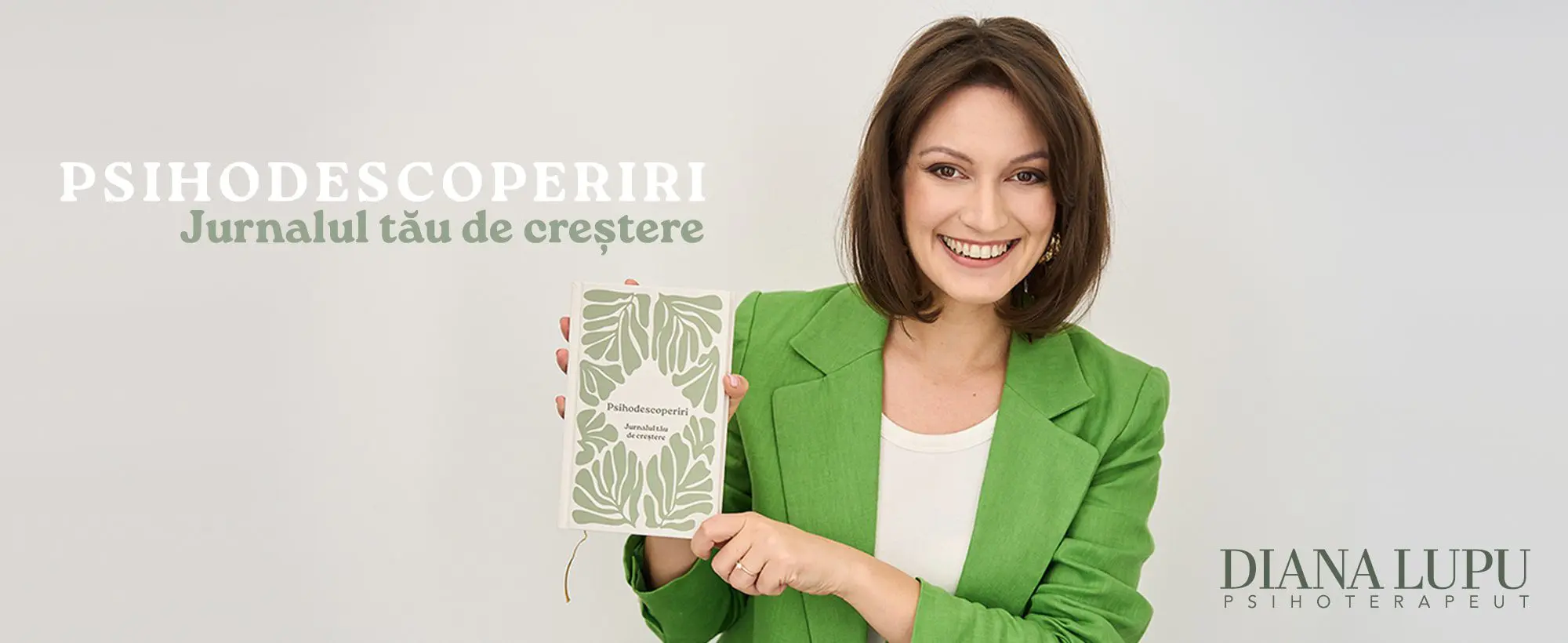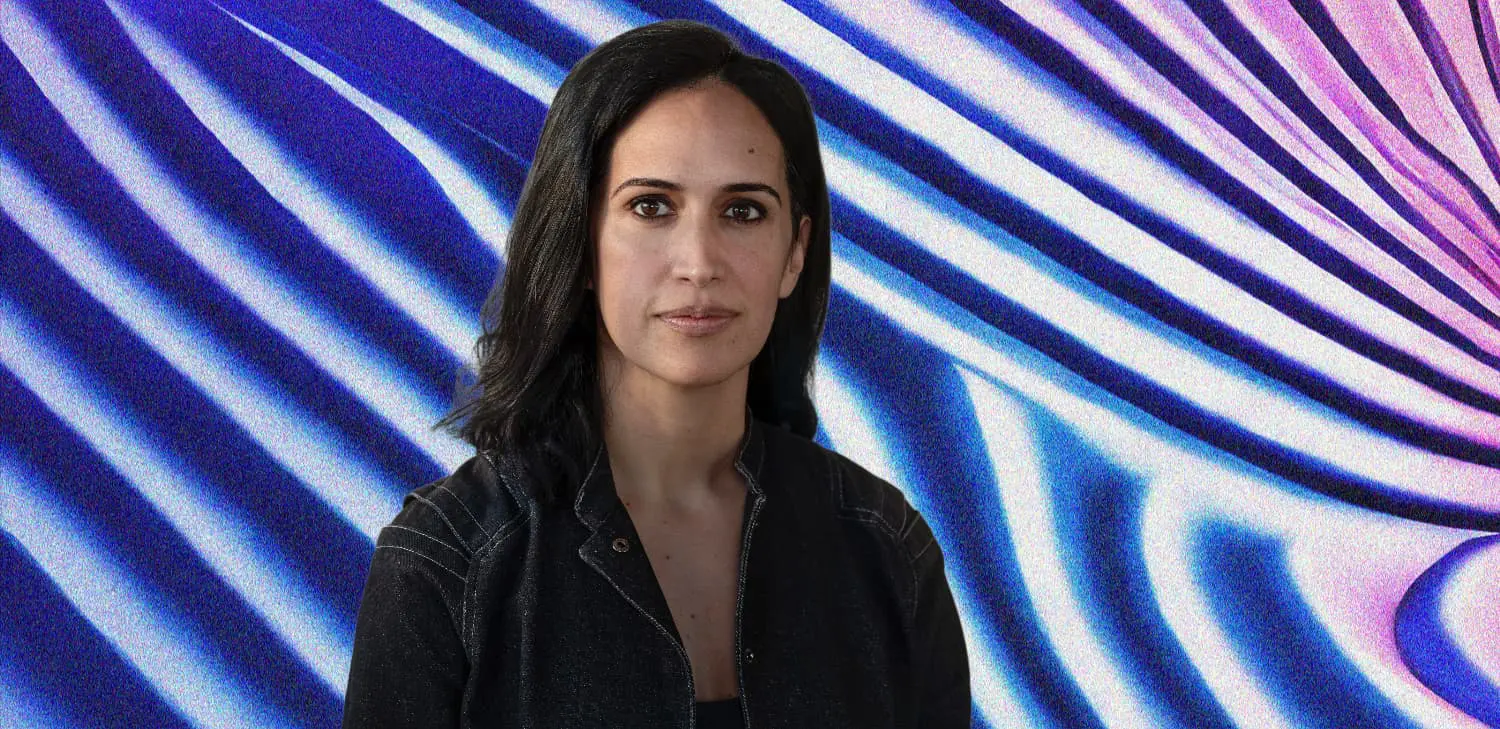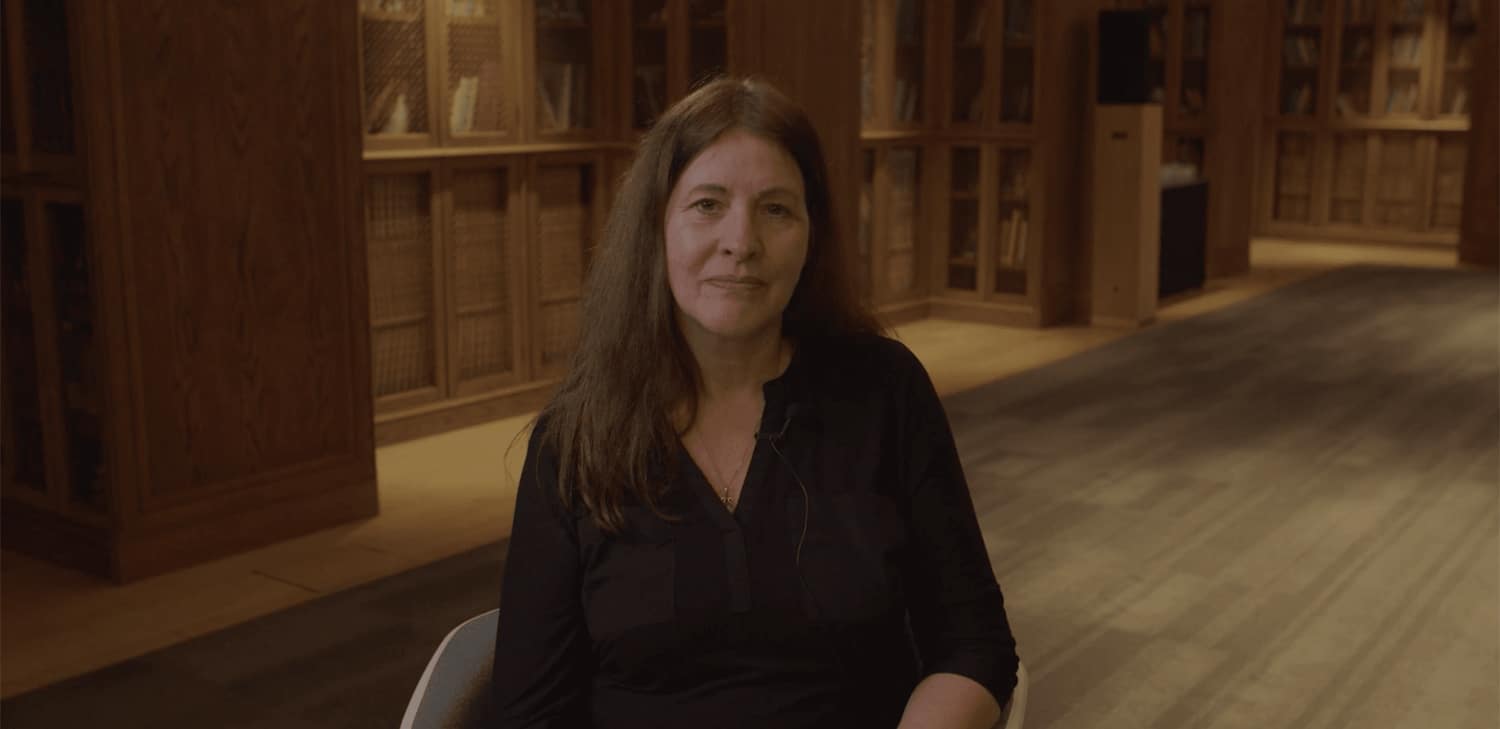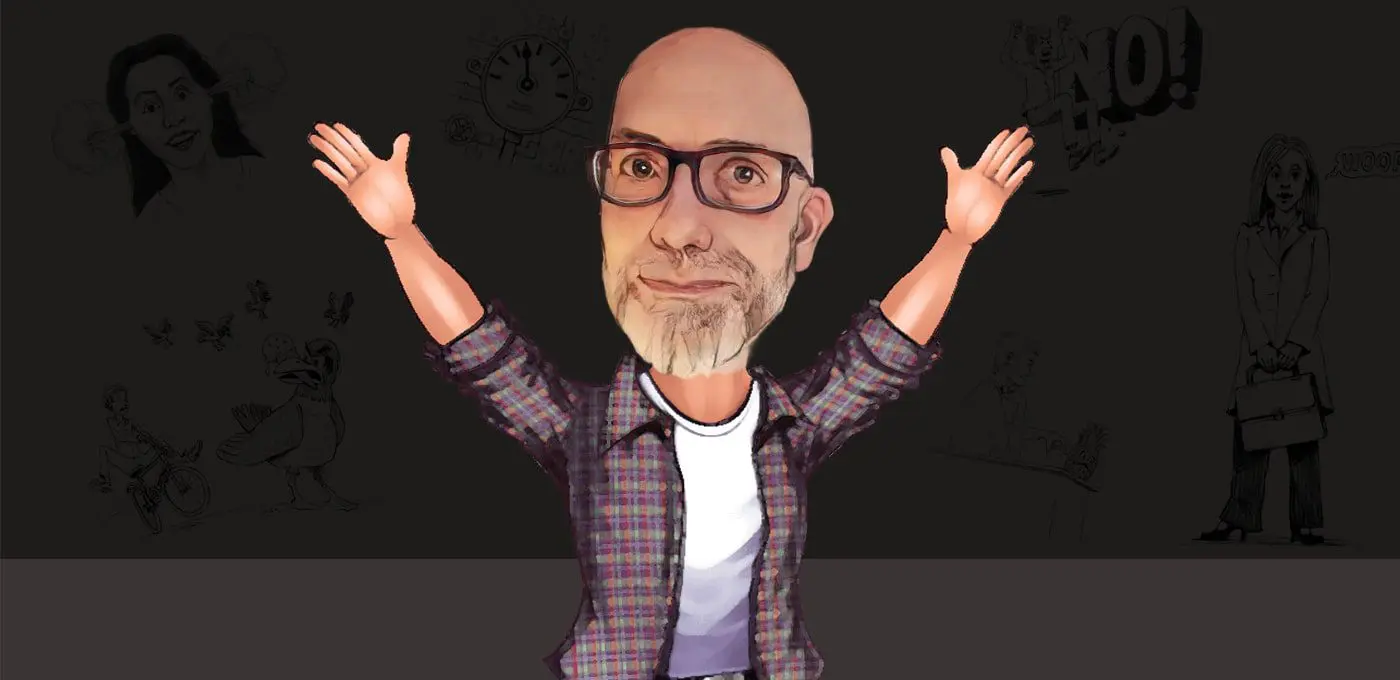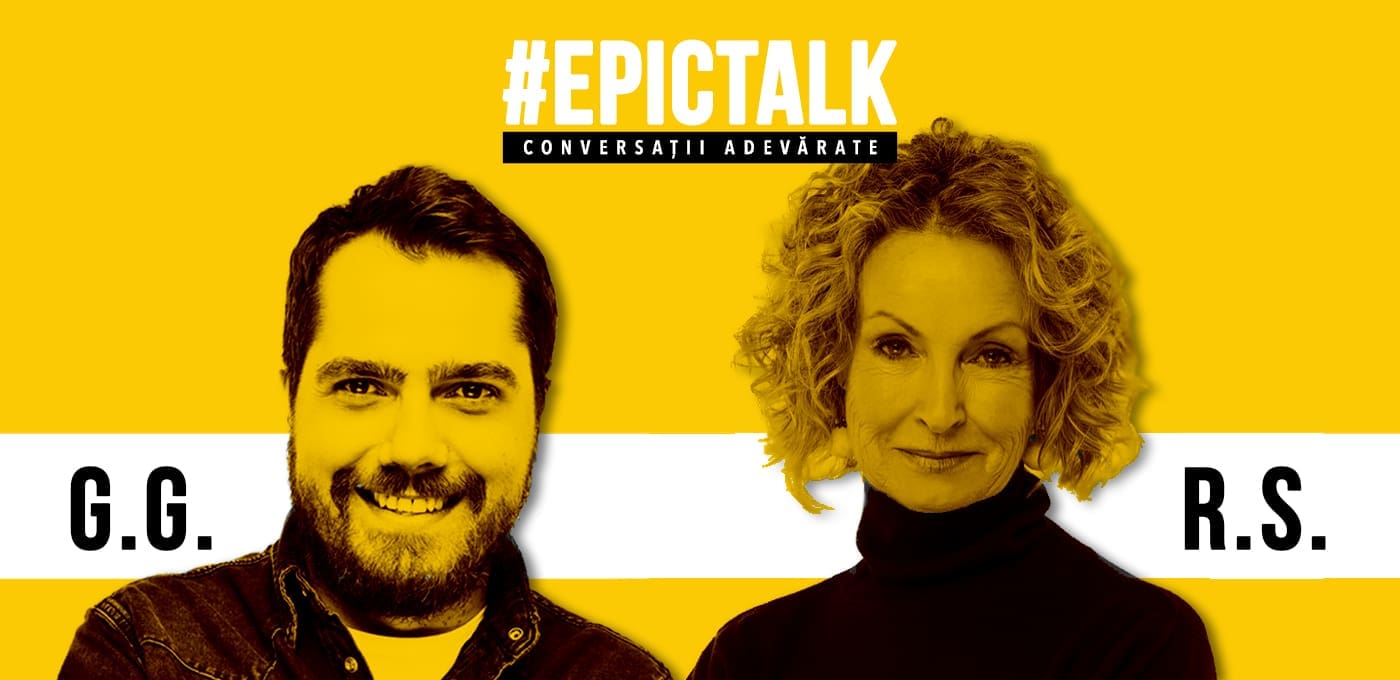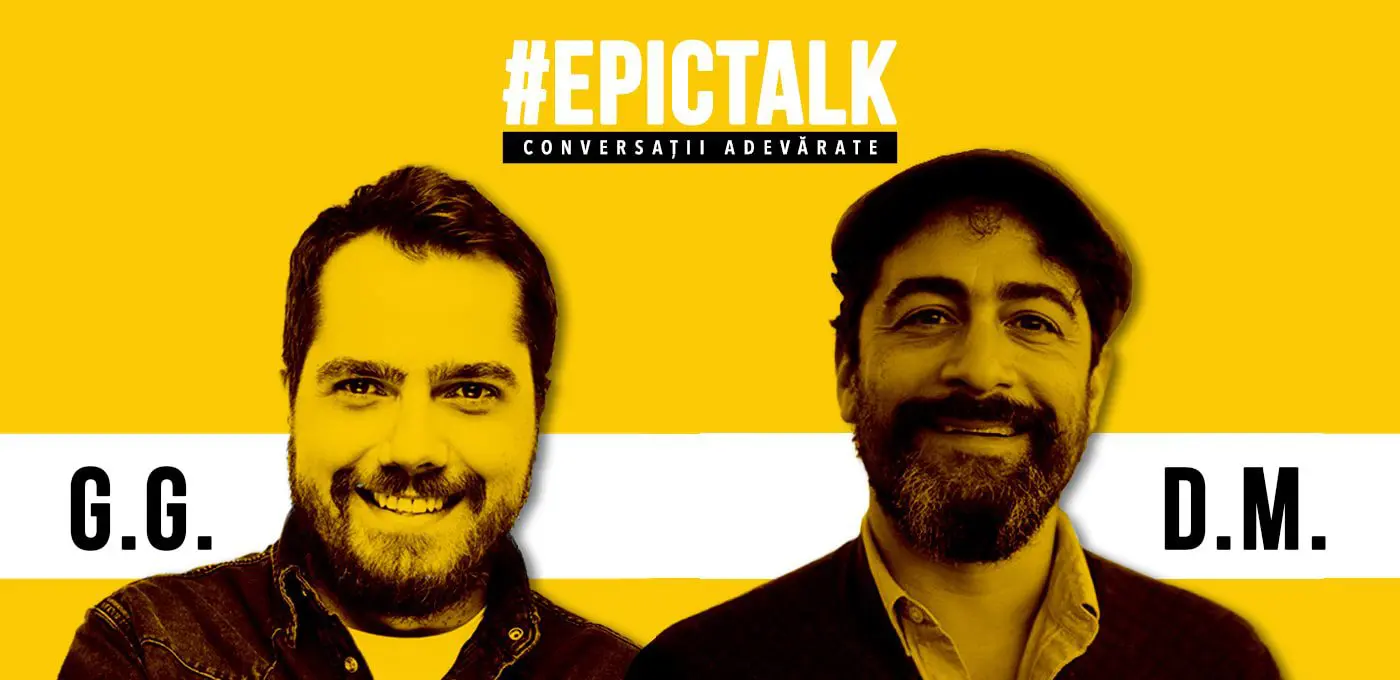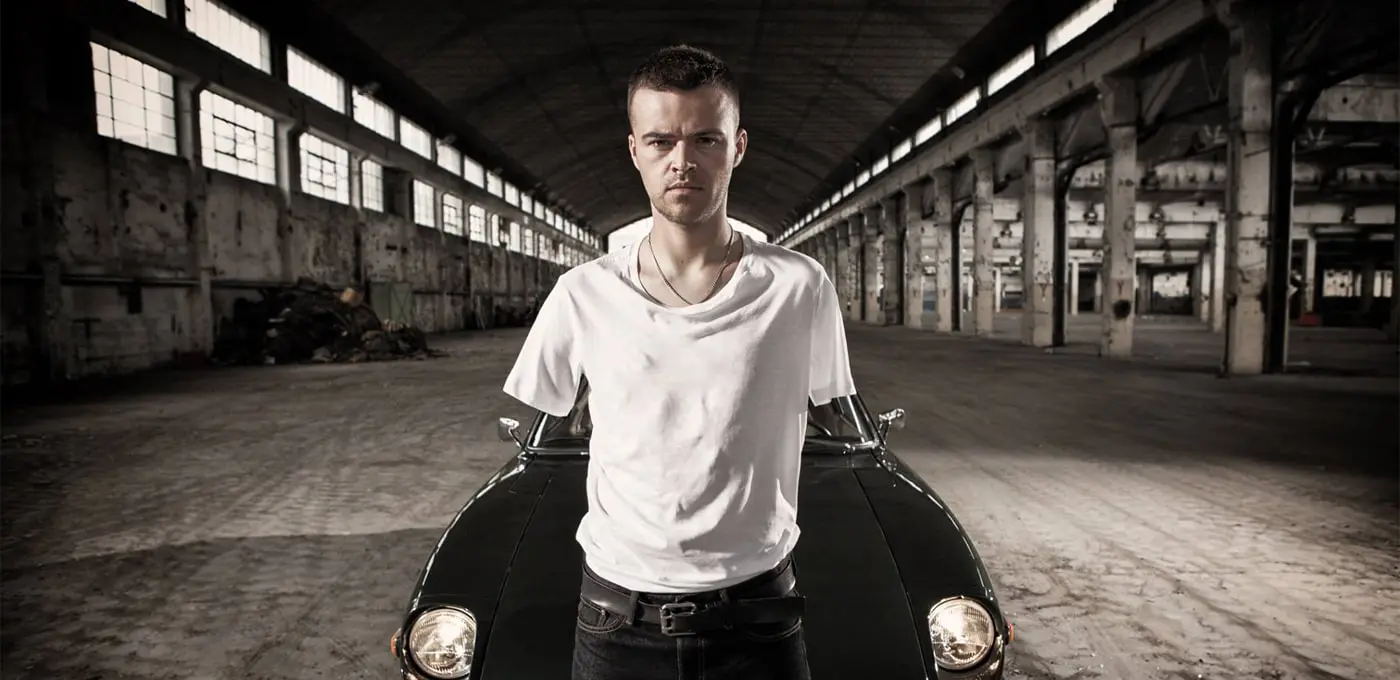Dear James, thank you for the openness of having a real conversation about How to Tell Depression to Piss Off; I really appreciate you taking the time to have this #EpicTalk. I admit, your book surprised me, which is why I’m really glad we’re having this interview. From your book, I could tell you are my kind of person: a committed man, who fights for life, who is far from perfection and has the courage to call things by their name. Congratulations for everything you wrote in your book; Romanian readers and I thank you for it!
Gáspár: I would like to start the interview by asking you: How are you feeling? Reading your book, everybody knows that you have a long term relationship with depression, and that your „friend“ visits you every once in a while. Which is why I ask you – what’s your present mental state, and how did you learn to live with depression?
James Withey: At the moment I am doing well thank you. Depression is always there in the background and it comes in waves, sometimes triggered by stress or a life event, but often it just comes and hits me in the face without any warning! At the moment, I manage it using the forty ways in the book; I try the different strategies at different times. Sometimes, getting angry at it works well, or I’ll try doing the opposite of what it’s telling me to do. Other times I’ll speak to a friend or I’ll say to myself „This is depression talking, it’s the illness, not you“, and that will help me get through. It’s all about being flexible and open with what will work and trying different things at different times.
Gáspár: My experience as a psychologist and psychotherapist taught me that many people don’t even recognize depression; it is often invisible to them. And now, given that it’s summer and all, a lot of people believe that depression doesn’t exist, that it only comes when we get back from vacation or when school starts. James, how would you describe depression, so that it makes as much sense for normal people, and how present is it in the summer?
James Withey: Depression doesn’t take a holiday in the summer – I wish it did! I can feel as unwell in the summer as in the winter, spring or autumn. I would happily send depression off to Spain for two months if I could! Someone once said to me „You can’t be depressed, look what a lovely summer day it is“. So ridiculous. It can be the most beautiful day, full of sunshine and flowers, and depression can still be with you.
It’s hard to describe depression accurately to someone who doesn’t experience it, but I would say that it feels like all hope has gone. But it’s not just that it’s gone, it’s that you’re convinced it will never ever come back and that everything is all your fault and you’re a terrible person. Along with all of this (as if that wasn’t enough!), the emotional pain you feel is so intense that at times it’s unbearable. You are in a dark hole, with no ladder and there seems to be no escape. When we live without hope, parts of us start to die. It’s a dreadful combination of feelings and, unlike a wound to your leg or arm, the pain is in your mind and so it’s hard to separate the illness from yourself. Stanford University Professor Robert Sapolsky says in his YouTube video that depression is the worst illness that you can get, and I agree. It’s incredibly damaging and life threatening, you have to treat it seriously and not feel ashamed to get help.
Gáspár: Your writing style is unmistakable, we see that even from the title. You write about depression in a way I never saw anyone doing, and I have to admit that I love it! Was it a difficult time for you when you started writing the book? Or, better yet, tell me how you came to have the idea of writing this book, and how was the writing process for you.
James Withey: Over the last ten years I’ve realized that I use the same techniques to manage depression; I started to write them down to help me remember them. Then I thought, „I wonder if other people would want to read about them as well.“ My first book, The Recovery Letters, is a collection of letters from people around the world recovering from depression, addressed to people currently experiencing it, in order to give them hope. For my second book it was great to distil all my own ideas about how I manage this illness.
Some of the chapters were hard to write as they brought back memories of difficult times, but overall, I absolutely loved writing the book. It was very cathartic because along with describing the different ways, I was able to tell some of my story with depression. I have always found the process of writing really beneficial to my mental health, and by telling others what happened to me I gained insights into my own journey with depression. You never know how a book is going to be received as you are writing it, but I really hoped that the different ways I was describing were going to help people, and that gave me a huge boost. The feedback so far has been so positive and that’s a huge gift.
Gáspár: Regarding the dark humour we see in How to Tell Depression to Piss Off, as soon as we published the Romanian version, I recommended it to two of my clients who are struggling with depression. One of them told me it was like a breath of fresh air, the other one couldn’t read it because it did not relate to her mood, but she promised she’ll try again when she feels better. What does your counselling experience tell you? When should this book be read, and what should we do when we feel like our depression doesn’t let us read it?
James Withey: It was really important for me to use humour in the book. Depression is so hard and it impacts on your concentration, so using jokes and keeping the chapters short makes the book more accessible, readable, and if it gets a few laughs then that’s brilliant! I think the last thing that people want is to read a really long, serious, difficult book on depression that feels like homework and could make them feel even worse.
Before writing this book, I was recommended so many other books on depression, all really long and complicated which were impossible for me to read – and then I felt bad that I couldn’t read them which made me feel more inadequate. I wanted to do the opposite, write a book that you could dip into when you were able to read – even just a few paragraphs at a time. Also, the book is designed so that you don’t need to start at page 1 like a traditional book, you can flick though and start at any point.
The book is aimed at people no matter what stage they’re at with their depression. It has helped people who’ve been living with depression for years and those who are at an acute stage. I would say if depression is stopping you reading it, just flick through the book and look at the chapter titles, because they alone will give you some ideas of what to do. Then when you have some respite, try one chapter that looks the most appealing and start from there.
Gáspár: When it comes to depression, we know it has many different forms and manifestations; apart from the fact that many can sometimes feel depressed, there are also people who learned to live with depression. There are many life stories that tell us depression will never disappear. How did you come to terms with the idea that you will never really get rid of depression? Or are you still fighting off this unpleasant part of life?
James Withey: For me, I have accepted that depression will remain with me and now it’s all about managing it. I spent so many years trying to get rid of it with no success, and it just made me more despondent and more exhausted. Acceptance doesn’t mean I stop fighting it though, it just means I have to live with it the best I can whilst still punching it! I know other people who feel that their depression has gone and that’s wonderful for them, but most people I know feel it continues to live with them in some form or might come back when things are hard.
Depression has been with me all my life, but it got significantly worse ten years ago. I can look back and see how far I’ve come since then, when I couldn’t see the point of living and for a whole year I was barely existing. Although I still get regular visits from it, it’s not as bad as it was back then. Depression CAN get better, you CAN manage it – that’s so important for people to know when it feels like a death sentence.
Gáspár: Reading about you on the Internet, I dicovered that you are passionate about mental health, you are a counsellor in the field, and you are the man behind the site therecoveryletters.com. Could you tell us more about your professional path and how you managed to grow this platform, where people with depression can support each other?
James Withey: After University I trained to become a person-centred counsellor under one of the main experts in the field, Dave Mearns in Glasgow, Scotland. I then worked in addiction, homelessness, mental health and sexual health services for fifteen years, working alongside people in great pain and distress. I spent many years delivering suicide prevention training and then ended up in a psychiatric hospital, on suicide watch myself. It just shows that mental illness doesn’t discriminate, it can happen to anybody, at any time.
I started The Recovery Letters website just after I got out of the psychiatric hospital the first time. I kept looking for a book or website where I could read stories of how other people were recovering from depression and kept being told there weren’t any, so I set it up myself! I needed to hear about hope, as hope is the antidote to depression. I wrote the first letter, then invited other people to contribute and the letters came flooding in. It got a lot of publicity here in the UK and around the world, and thousands of people come to the website each month to get support from people who understand what depression feels like.
Gáspár: Besides the letters written in English, you also have letters written in different other languages (I’ve seen at least two, in Italian and Portuguese). Does that mean that if someone were to send a letter in Romanian, you would publish it on the site?
James Withey: I would LOVE to have letters in Romanian! The more languages on the website the better. The Recovery Letters book has been published in simplified Chinese, Welsh and German so far – I love that the letters can reach people in their first language – it’s so important. I also adore the Romanian language, it’s beautiful. I visited Bucharest a few years ago and tried to learn as much as I could. I’d love to explore more of your country.
Gáspár: Returning to the book, it presents forty ways to get your life back, ways that are actually scientifically proven. Meaning, they are also talked about in the schoolbooks written by psychologists and psychiatrists. But a big plus of your book is the familiarity in the language and the fact that you don’t use specialty terms or empty terminology (a hallmark of specialized texts). Besides „book therapy“, how necessary do you think psychotherapy is for the process of managing depression? And what types of psychotherapy did you yourself try?
James Withey: I think counselling and psychotherapy are really important to managing depression. The act of talking alone is beneficial, we have a phrase in English, „A problem shared is a problem halved“. Also, talking to someone that you can trust, who isn’t related to you, and is present just for you is crucial in my opinion. You have to find the right person and have to understand that it’s not always an easy experience but nevertheless it’s a massive part to ongoing recovery and should always be made available when being prescribed medication as well.
I have counselling sessions every two weeks at the moment, and I find it so helpful. My current counsellor is humanistic and uses Gestalt techniques sometimes. However, the most important thing for me is that he’s honest, genuine, and trustworthy and I can talk to him freely without any judgement.
Gáspár: Reading your description from the book I found out you are married to a man, both of you having an emotionally damaged cat. Given that June is the month of sexual identity and orientation diversity, I would like to ask you: What helped you in your process of owning your sexual orientation? I know this question might not be related to the interview, but I also know what an emotional trauma non-straight Romanians have to bear. Which is why I would really appreciate it if you could address them.
James Withey: I came out when I was eighteen, back in 1991. Things were very different then, with no gay people on TV, no internet, no education at school about sexuality or gender, and no one I knew was gay. I spent all of my teenage years knowing I was gay but being too afraid to tell anyone for fear of being rejected, bullied and unloved. When I was eighteen, I decided the most important thing was to be true to myself and not be ashamed of who I was. It wasn’t an easy process, many of my relatives found it hard to accept, but at university I found a wonderful group of friends who loved me for who I was, and this really helped me. At twenty-six I met my husband and we have been together for twenty-three years now. Finding your tribe of people, your cheerleaders, helps massively.
Coming out about your mental illness has lots of parallels to coming out as gay or bi or trans. You fear how people will react, you worry they won’t understand or won’t be able to support you. I have found that people who can’t be with me when I am vulnerable or can’t manage me being different from them are not people that I should be spending time with.
Yes, we have a cat who adopted us when he was about a year old, he had been abandoned and was living in the streets. He has lots of anxieties and trauma because of his past, he hates being alone and comes for walks with us! Pets are a great comfort when you’re unwell.
Gáspár: We have come to the end of our conversation. Thank you for your availability and openness, and I really wish your book brings solace to as many as possible. I promise to (re)read it, especially when depression visits me again. Your book ends with the chapter Take pride in staying alive, so I would like to ask: What are you proud of at this moment in your life?
James Withey: Thank you and what a great question!
I am really proud that I am able to maintain my job – I work part time in a library as well as writing. When I was acutely unwell with depression, just getting out of bed felt impossible, so I’m so proud I managed to get back to work.
Other times I am just proud that I get through the day when depression is hard; this feels like a huge achievement – it’s all relative! Sometimes what might seem like the smallest thing to others make me proud; negotiating at the supermarket, phoning a friend, doing some gardening. These things are huge when depression is biting.
I’m also so proud of my books. My fourth book, How to Tell Anxiety to Sod Off, comes out in January 2022 in the UK, and I am writing my fifth book about grief at the moment. Looking back at my time in psychiatric hospitals, on suicide watch, with mental health crisis teams, and in utter despair, I am amazed and so proud that I am able to write to help others, it’s a real honour.
I sincerely hope the books helps many, many people in Romania.


